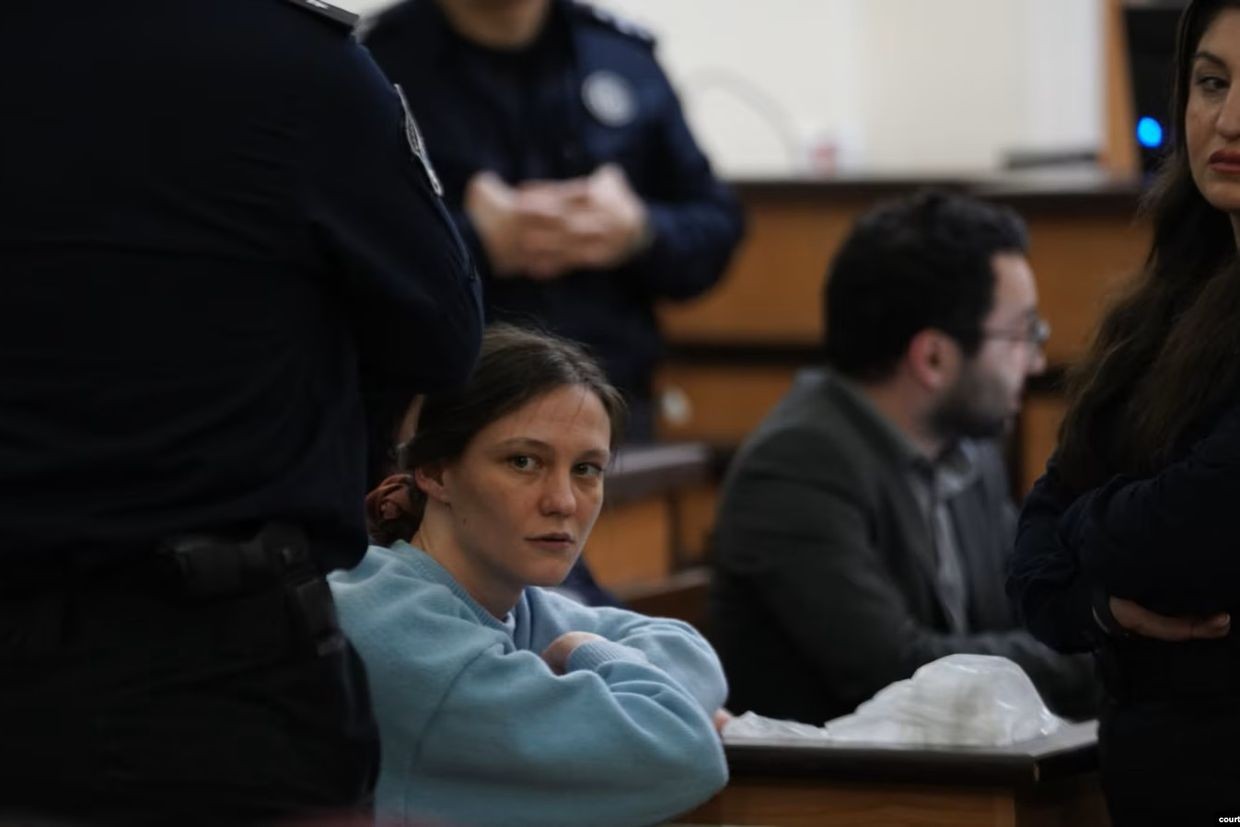
The mother of Anastasia Zinovkina, a Russian citizen detained in Georgia, has been denied entry into the country. The woman had intended to travel to Tbilisi to visit her daughter in prison.
According to lawyer Shota Tutberidze, Zinovkina’s mother was turned away by border guards at Tbilisi International Airport on Wednesday. This followed repeated efforts by Zinovkina’s legal team to arrange a prison visit between mother and daughter. It had finally been scheduled for early August.
Zinovkina was detained in December 2024 on drug-related charges. Two other Russian nationals — her partner Artem Gribul and another young man, Anton Chechin — were also arrested around the same time on the same charges. All three denied the allegations and linked the charges to their participation in anti-government protests in Tbilisi.
In a letter from prison, her partner Gribul wrote that Zinovkina had serious spinal issues prior to her detention, which had worsened during her time in jail. On 22 July, he went on a multi-day hunger strike, with one of the demands being improved conditions for his partner.
OC Media contacted the Ministry of Internal Affairs for comment but has not received a response as of publication.
According to Tutberidze, Zinovkina’s mother was told she had been fined in relation to her participation in a demonstration in Tbilisi. The demonstration in question was likely the Mothers’ March held on 3 March, which called for the release of those detained during protests.
Due to fragmented communication with the woman, Tutberidze could not confirm the exact nature of the fine, but said it was likely a ₾5,000 ($1,800) penalty for blocking the road.
The woman reportedly asked border guards to issue the official fine notice and said she was ready to pay the fine on the spot — but to no avail.
‘She was refused the delivery of the fine notice, and as for the payment, they told her that no matter how much she paid, she was listed in a certain database and would not be allowed to enter under any circumstances’, Tutberidze said.
He noted that an unpaid fine could not serve as a valid basis for denying entry to Georgia, especially given that the woman had never been informed about the fine beforehand.
Commenting on the incident, Tutberidze said that Georgia’s border authorities are misusing the border entry mechanism ‘in an unlawful and arbitrary manner’. He recalled a growing number of recent cases in which Western journalists and other individuals critical of Georgian Dream were denied entry to the country.
Unlike in Zinovkina’s mother’s case, the reasons for denying entry to those individuals were not specified, with authorities routinely citing the vague explanation of ‘other reasons envisaged by Georgian legislation’.
The lawyer suggested that so-called ‘informal databases’ may indeed exist, in which the State Security Service could use a ‘red-flagging’ mechanism to prevent undesirable individuals from entering Georgia.
In May, the French and Polish embassies in Georgia issued travel advisories, warning their citizens they could be denied entry into Georgia or face heavy fines for participating in or sharing information on social media related to the ongoing anti-government protests.
In late May, the Georgian Parliament, fully controlled by Georgian Dream and its allies, passed legislative amendments to the country’s migration law that mainly concerned foreigners who commit crimes or overstay, as well as the procedures for obtaining asylum.
Among the new provisions were deportation and entry bans for foreigners based on a range of administrative offenses, including petty hooliganism, disobedience to Georgian police, and insulting a public official.











